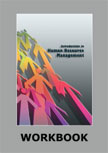Talent Management at ICICI Bank
|
|
Case Details:
Case Code: HROB157
Case Length: 22 Pages
Period: 2000-2013
Organization: ICICI Bank.
Pub Date: 2013
Teaching Note: Not Available
Countries: India
Industry: Banking and Finance
To download Talent Management at ICICI Bank
case study
(Case Code: HROB157) click on the button below, and select the case from the list of available cases:

OR
 Price:
Price:
For delivery in electronic format: Rs. 500;
For delivery through courier (within India): Rs. 500 + Rs. 25 for Shipping & Handling Charges
»
Human Resource, Organization Behavior Case Studies
» HRM Short Case Studies
» View Detailed Pricing Info
» How To Order This Case
» Business Case Studies
» Area Specific Case Studies
» Industry Wise Case Studies
» Company Wise Case Studies
Please note:
This case study was compiled from published sources, and is intended to be used as a basis for class discussion. It is not intended to illustrate either effective or ineffective handling of a management situation. Nor is it a primary information source.
Chat with us

Please leave your feedback

|
|




<< Previous
Background Note
|
ICICI Bank was founded in 1994 as a subsidiary of an Indian financial institution, the Industrial Credit and Investment Corporation of India Limited (ICICI). ICICI through its subsidiary, ICICI Bank, transformed itself from a developmental financial institution offering services such as project finance into a diversified financial services group offering an array of products and services directly as well as through subsidiaries and affiliates such as ICICI Bank. In 1999, ICICI became the first bank or financial institution from Asia barring Japan to be listed on the New York Stock Exchange.
|

|
In 2000, ICICI and ICICI Bank merged to benefit the shareholders of ICICI Bank through a large capital base and scale of operations.
In October 2001, the Board of Directors at ICICI and ICICI Bank approved the merger of ICICI with ICICI Bank and two of ICICI's wholly-owned retail finance subsidiaries – ICICI Personal Financial Services Limited and ICICI Capital Services Limited.
ICICI Bank made phenomenal progress in a short period under the leadership of Kamath, who joined ICICI Ltd. as its managing director and CEO in its embryonic stage in 1996. It was at this time that the preliminary results of the liberalization efforts that India had initiated in 1991 began to show.
In the changing environment, ICICI transformed itself from a traditional development finance institution to a customer-centric private-sector bank. It was not just merely a growth story of a corporate but the success of a clearly envisaged leadership strategy adopted by Kamath for the growth and development of the bank leveraging human capital and technology.
In January 2002, the merger was approved by shareholders of ICICI and ICICI Bank. In March 2002, the merger was approved by the Gujarat High Court and in April 2002 by the High Court of Judicature at Mumbai and the Reserve Bank of India. Subsequently, ICICI Group's finance and banking operations - wholesale as well as retail - were integrated into a single entity.
It was reported that Kamath's ability to sense potential in the retail business ahead of others and inspire his people to go for it was a major contributor to ICICI's success. From 2001 to 2006, ICICI Bank bagged The Asian Banker's ‘Best Retail Bank in India' award.
Over the years, ICICI Bank adopted smart initiatives in the rapidly growing financial sector of India and created a state-of-the-art banking infrastructure in its branches across India. The main strengths of ICICI Bank were its talent pool, complete product suite, large capital base, extensive customer relationship, strong brand franchise, technology-enabled distribution architecture, and universal banking presence. Though ICICI Bank was mainly involved in retail banking, it ventured into other products such as insurance, corporate banking, venture capital, etc.
In 2007, ICICI Bank created history by raising US$ 5 billion in the largest-ever public offering in India and emerged as a valuable financial organization.
In 2009, Kamath stepped down from the post of CEO and MD of ICICI Bank in favor of Kochhar.
For the FY ended March 31, 2012, ICICI Bank had assets worth US$ 83.6 billion, which made it the second largest bank in India.
Excerpts
- Next Pages >>
|
|








